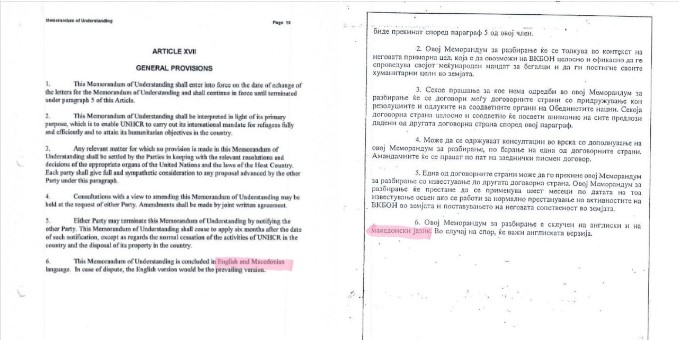Over the week, officials of the Kovacevski Government made a big deal out of the fact that Macedonia signed a long delayed treaty with the EU FRONTEX agency. The treaty regulates the use of FRONTEX units and resources in Macedonia, but the big issue for the Government is that it was signed in Macedonian.
According to Kovacevski and President Pendarovski, this sets a precedent that Bulgaria will have to follow in the future. They insist that with the signing of the treaty, the EU acknowledged the Macedonian language and will take a position that, ultimately, it will become an official language of the European Union – even as Bulgaria sometimes insists that it is just a dialect of the Bulgarian and says it will oppose its eventual elevation as an official EU language.
This declaration that Macedonia scored a major victory in Brussels caused amused comments from the opposition parties, who pointed out that Macedonia has already signed numerous treaties with the EU and other international organizations – all of them in Macedonian as one of the official languages.
This is a normal, established practice. The first international treaty was our Memorandum of understanding with UNCHR, signed on November 3rd 1994, in the UN headquarters in New York, and it was signed in English and in Macedonian. And ever since it was the usual, common practice, said former Foreign Minister Antonio Milososki.
He added that the Kovacevski Government is “incompetent when it comes to tackling our problems, such as runaway inflation and the frequent national identity humiliations, so now it tries to cover its failures up” by promoting this alleged success.




Comments are closed for this post.